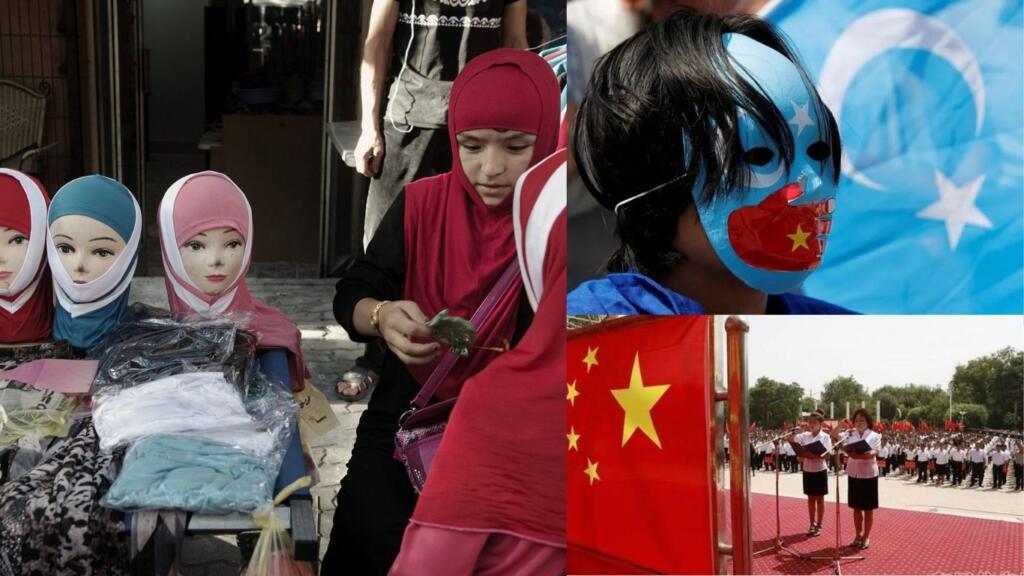In Xinjiang, the Chinese state has built a system that polices women’s bodies as tightly as it monitors their thoughts. Uyghur women live under constant watch subjected to forced birth control, coerced sterilisation, and family separation. Reproduction itself has been turned into an instrument of power, aimed not only at controlling women but at erasing an entire generation.
This is not random cruelty; it is a policy machine. Government data, local directives, and survivor accounts converge on one fact: Beijing has designed a coordinated birth-suppression regime. Forced IUD insertions, compulsory sterilisation, and threats of detention for those who resist are justified through the language of “counter-extremism.” Women’s fertility has become a measurable target in bureaucratic spreadsheets—a population-control metric disguised as security policy.
Reproduction as State Policy
Official statistics show a collapse in birth rates across predominantly Uyghur regions beginning in 2017. These declines coincide with an unprecedented spike in sterilisation procedures and IUD placements—far above national averages. The United Nations human rights office found credible indications that these measures violated reproductive rights on a vast scale.
Local authorities have openly linked “family-planning compliance” to political reliability. Refusal invites detention; obedience is rewarded with “stability points.” Analysts warn that if these trends continue, millions of Uyghurs could effectively disappear from demographic projections within decades.
Bodies as Battlefields
Inside and around the camps, survivors describe a continuum of abuse. Women recount forced gynaecological exams, injections that halt menstruation, and systematic sexual violence intended to break both individual resistance and communal spirit. Investigations by international media and human rights groups have corroborated these testimonies, showing that rape and coercion are not isolated crimes but part of the system’s design.
These accounts make clear that control of women’s bodies is the control of a people’s continuity—biological, cultural, and psychological.
Intimacy as Surveillance
The repression does not end at the camp gates. The state’s Pair Up and Become Family programme embeds male officials in Uyghur homes under the pretext of promoting ethnic unity. Reports describe officials sharing beds or sleeping spaces with women whose husbands are imprisoned, collapsing the boundary between authority and intimacy. Privacy itself becomes subversive; consent, meaningless under watch.
Technology amplifies this intrusion. Checkpoints, facial-recognition systems, and vast data-fusion platforms monitor movement, contacts, even facial expressions through emotion-detection software. In this digital laboratory, the home becomes a checkpoint and the body a credential stamped by the state.
Children of Separation
Family separation completes the cycle of domination. Thousands of children have been classified as “orphans” and placed in state boarding institutions where Mandarin replaces Uyghur, and history lessons erase heritage. Parents abroad face an impossible choice: return and risk detention, or remain free and lose their children. UN experts warn that these removals and assimilation policies meet the legal criteria for forced transfer under international law.
The Women Who Resist
Uyghur women’s rights advocates and exile organisations have kept the issue alive even as states look away. Groups such as the Uyghur Human Rights Project and Campaign for Uyghurs have gathered testimonies, pursued sanctions, and pressed for international accountability. Their persistence has reframed what Beijing calls “family planning” as what it truly is reproductive coercion within a broader pattern of crimes against humanity.
Law, Evidence, and Denial
The Genocide Convention is explicit: imposing measures to prevent births or forcibly transferring children within a protected group constitutes genocide. The UN’s 2022 assessment stopped just short of that label but concluded that the abuses in Xinjiang may amount to international crimes, particularly crimes against humanity.
Beijing denies every allegation, flooding global platforms with development stories and influencer videos that depict “happy” Uyghur families. Yet the state’s own statistics and regulations betray its intent. When a government turns wombs into targets, bedrooms into checkpoints, and classrooms into tools of assimilation, the result is not harmony but engineered disappearance.
Erasing the Future
Controlling women is the fastest way to control a people’s future. Xinjiang shows how state power can be honed toward that end under the banners of modernisation and security. The world owes Uyghur women more than sympathy it owes the enforcement of international law, sanctions that have consequence, and the political courage to name what is unfolding: a project of demographic erasure built on gendered repression.
History will not remember the euphemisms. It will remember who stood silent while women’s bodies were drafted into the architecture of control.
(Ashu Mann is an Associate Fellow at the Centre for Land Warfare Studies. He was awarded the Vice Chief of the Army Staff Commendation card on Army Day 2025. He is pursuing a PhD from Amity University, Noida, in Defence and Strategic Studies. His research focuses include the India-China territorial dispute, great power rivalry, and Chinese foreign policy.)

